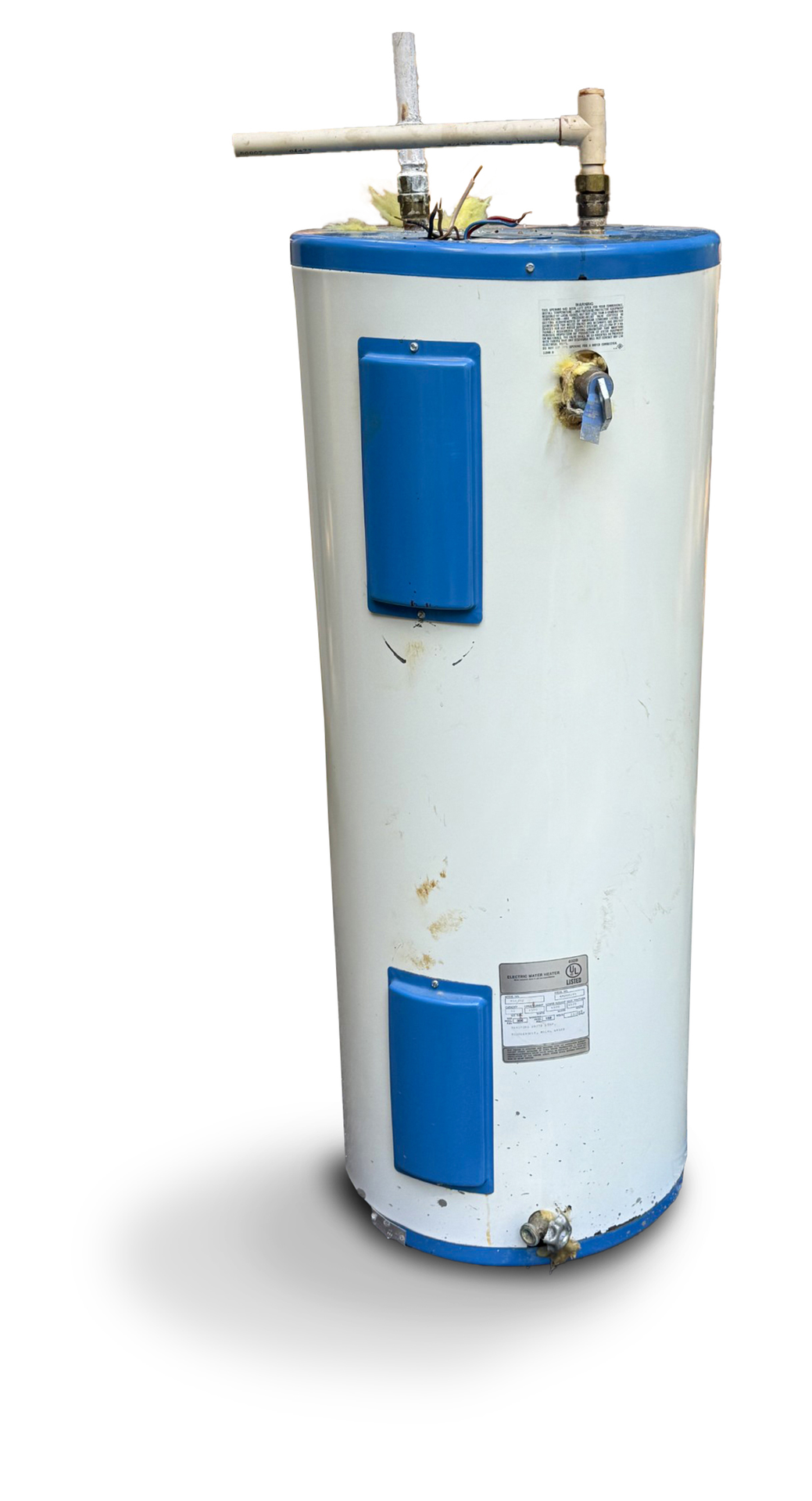Auburn culinary center a win-win for students, tourism
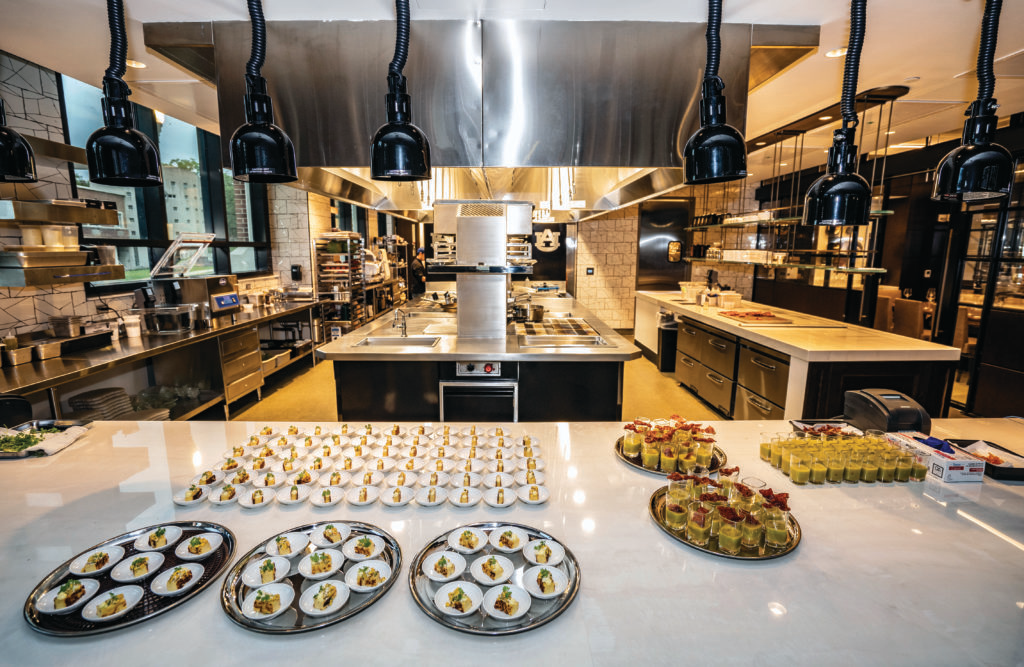
“At the intersection of campus and community.” This phrase is used often to describe Auburn University’s new Tony & Libba Rane Culinary Science Center (RCSC), and it’s not just a motto; it’s a physical reality.
The state-of-the-art facility complete with a teaching hotel and restaurant, a food hall and culinary lab spaces opened in August and occupies a street corner across from Samford Hall, Auburn University’s administration headquarters and a stately landmark that denotes where campus ends and the rest of Auburn begins. But it is a philosophy, too, one that conveys a vision and a hope for the center’s far-reaching and long-lasting impact.
The RCSC was made possible, in part, by a generous donation from Auburn alum Jimmy Rane that helped fund years of intense research, design and development. It’s named in honor of his parents and is now the home of Auburn University’s School for Hospitality Management. Its sheer size and scope make it a standout in the world of culinary and hospitality education; so too does its innovative collaboration between private business and the university, with the college and Ithaka Hospitality Partners (IHP) joining forces to operate its many facets.
“It’s a true partnership between industry and academia,” says Ithaka founder and CEO Hans van der Reijden.
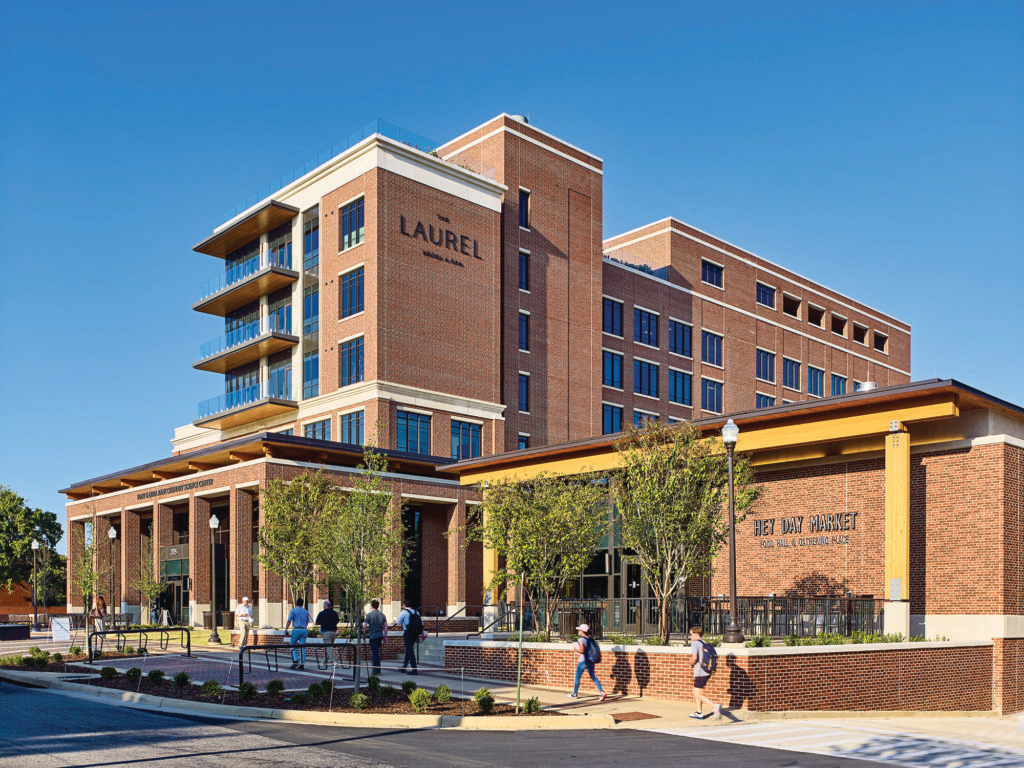
Taste the teaching
The RCSC’s teaching restaurant, 1856, is a 48-seat fine-dining space named for the year the university was founded and is fully staffed by hospitality management undergrad students. They’re at the hostess stand, waiting tables and in the open kitchen, where they receive guidance under the watchful eye of a professional chef.
Each year, the program heads will choose a chef-in-residence, someone who has achieved a high level of success in the field. “They visit and oversee things at 1856 once a month, but they send their sous chef or chef de cuisine to live here and work alongside our students in the restaurant for that year,” van der Reijden says. For the current academic year, the chef-in-residence is Tyler Lyne, who’s also opening two new Birmingham restaurants.
Freshmen and sophomores run the lunch service, and at dinner time, upperclassmen prepare and serve a nine-course tasting menu with wines paired by the master sommelier and pulled from the restaurant’s two-story, temperature-controlled wine room.
The learning opportunities continue in a more casual but no less impressive environment at RCSC’s Hey Day Market food hall. Here, one of the stalls will serve as a new business incubator dedicated to helping hospitality management and culinary science students with an entrepreneurial spirit launch their food-focused idea. Starting in fall semester 2024, and following a formal application and competitive selection process, one student will be presented with an opportunity to develop and proof their culinary concept at Hey Day as a new option in the food hall. The student will be fully responsible for managing all aspects of this business over the course of the next year before making way for the following year’s entrepreneur.
The purpose is to elevate hospitality education, and the center drew inspiration and ideas from other schools, organizations and companies in the hospitality sphere. “We visited so many places doing this or that very well; but they had silos of excellence,” he says. “We wanted to create a facility and program that covers every aspect and does them all with excellence. This approach gets us there.”
Auburn’s Hospitality Management program has three primary tracks: hotel and restaurant management, culinary science and event management. With RCSC as its homebase, students complete traditional classroom work with lectures and note-taking and participate in active learning as they chop, stir and sauté in gleaming stainless-steel-cloaked cooking and baking labs.
But they also gain hands-on experience in an up-and-running restaurant and a hotel that are serving real-world customers in real time. Every student in the program, whether they are majoring in hospitality, culinary or events, spends time working in every component before graduation. They do all the food and hotel labs, plus an additional 1,000 work hours. It’s all to ensure students see, hear, touch, smell and taste every piece of the wider hospitality picture.
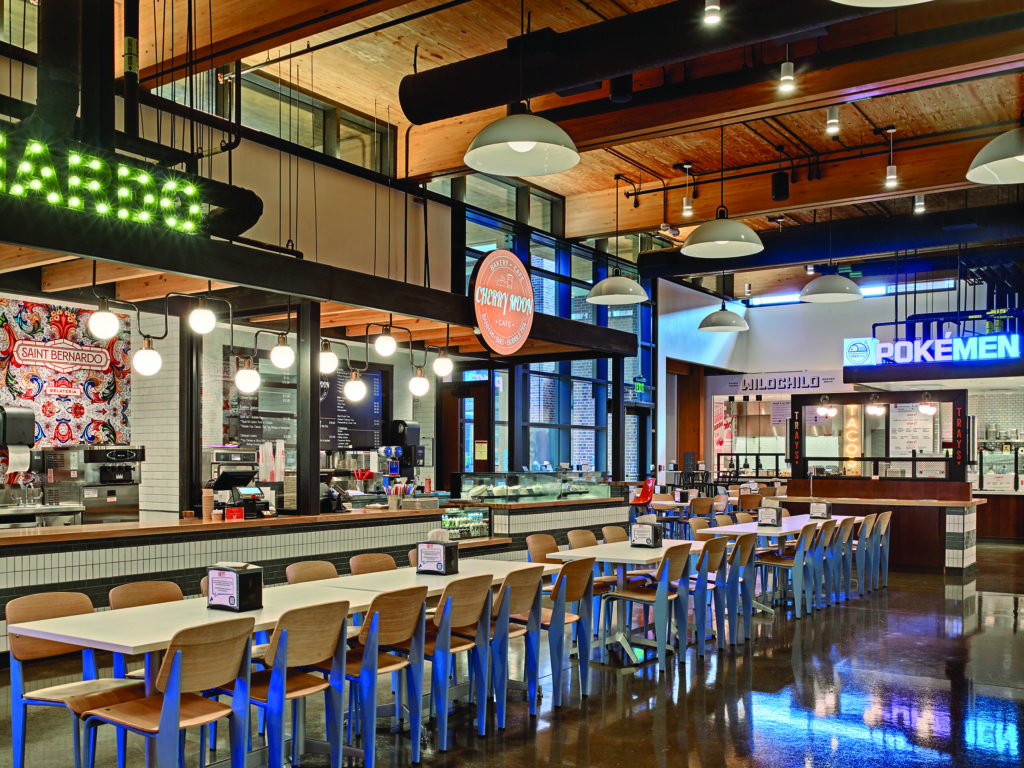
Eat it up
Hungry yet? Satisfy almost any appetite with one of the many eating options at RCSC’s Hey Day Market.
- Khoodles: Malaysian street noodle and rice bowls
- La Cubanita: classic pressed Cuban sandwiches
- Little Darling Burger Co.: juicy burgers, fries and frosty milkshakes
- Loud Roots: build-your-own bowls and smoothies based on fresh, nutritious ingredients
- Pizzeria Ariccia: artisanal, wood-fired pizzas
- Pokémen: poke and ramen bowls featuring fresh seafood and veggies
- Saint Bernardo Gelateria: smooth and sweet, creamy and cold gelato in multiple flavors
- Wildchild: Southern California-style tacos and more
- Cherry Moon: Vietnamese and Cantonese cuisine, including bahn mi sandwiches and boba tea
Dr. Martin O’Neill heads the educational side of RCSC and notes what makes it such a big win for students. “It allows us to do something we weren’t able to do before, not at this level. We can focus on ultra-luxury and premium service,” he says.
“The entire center is a living and learning lab, and the multiple elements allow us to really dial into a training regime and get very specific with each student.”
The facility will make a profound and positive impact on the education available to university students, but it’s a boon for the surrounding community too. RCSC’s commercial entities – the Laurel Hotel, the Hey Day Market food hall and 1856 restaurant – are open to the public, inviting Auburn residents and visitors to come dine out and hang out. Other offerings and special events welcome them to continue their own education with workshops and informal classes, further blurring the line between education and entertainment, courses and commerce.
O’Neill stressed that engaging and enriching the community in this way is at the core of the university’s mission. “We have teaching, learning, scholarship and research as our focal points, but also outreach, and RCSC allows the university to hit all of these,” he says. “We have a very open-door, open-minded approach to bringing the community here to enjoy it and be a part of what we are accomplishing.”
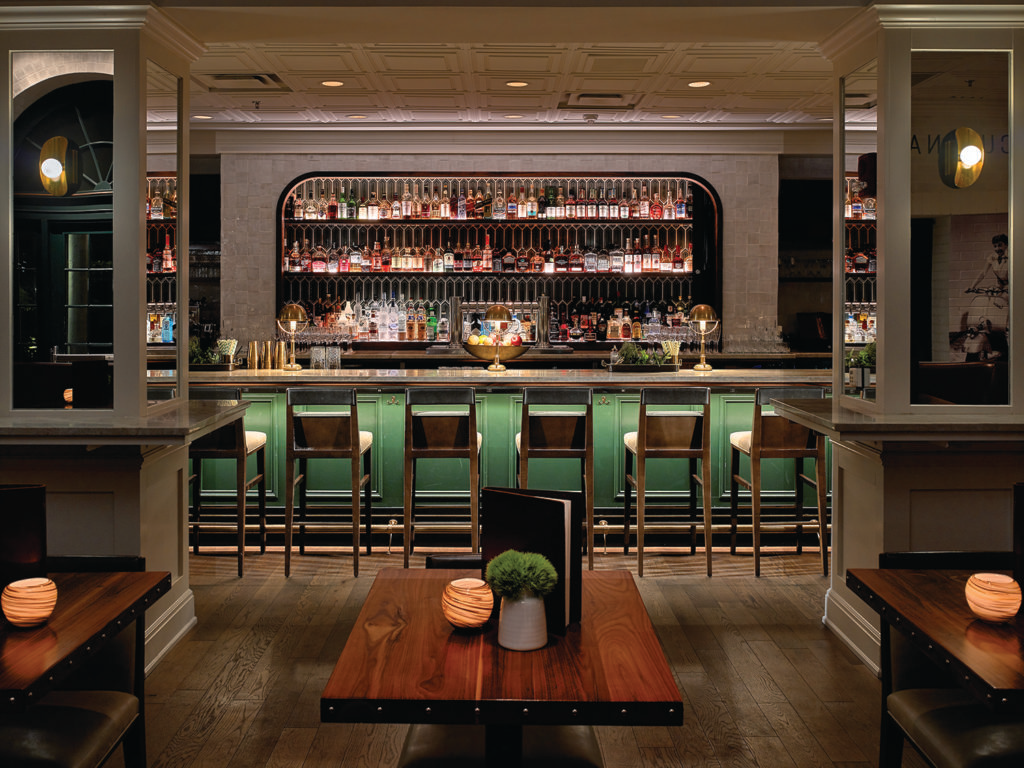
On the menu
Here’s a bite-by-bite look at all the educational components of the 155,000-square-foot RCSC.
- A brewery science lab to be utilized by the program’s master of brewery science students, complete with a taproom for serving and selling beer made onsite.
- A distilled spirits lab with a micro-distillery, which will host visiting distillers to teach techniques using both column and pot stills, which were built in Kentucky, a bastion of American spirits.
- Wine appreciation classrooms
- Kitchen labs specific to baking, global gastronomy, catering, butchering and more
- A coffee roastery
- Hey Day Market food hall
- 1856 Restaurant
- Laurel Hotel & Spa
Greenspaces and a rooftop terrace will regularly host events. The center’s culinary exhibition classrooms will be the sites of wine tastings and cooking demos, even food photography courses. These aspects give the program’s event management students unique experiences to plan and execute. “The end goal is for the center to offer an unparalleled experience for the entire area and draw even more visitors by enhancing Auburn as a tourist destination with these new, exciting amenities,” says van der Reijden.
But RCSC’s significance extends beyond the university’s and the city’s borders. O’Neill explains how the entire region will benefit from the center.
“The center is totally unique,” he says. “There is nothing else like it in the state, really nothing else like it in the nation. It will enhance tourism and train the next generation of hospitality professionals necessary to meet the needs of increased tourism. We want to be a key part of bettering the Alabama experience for all visitors who come to the state.”
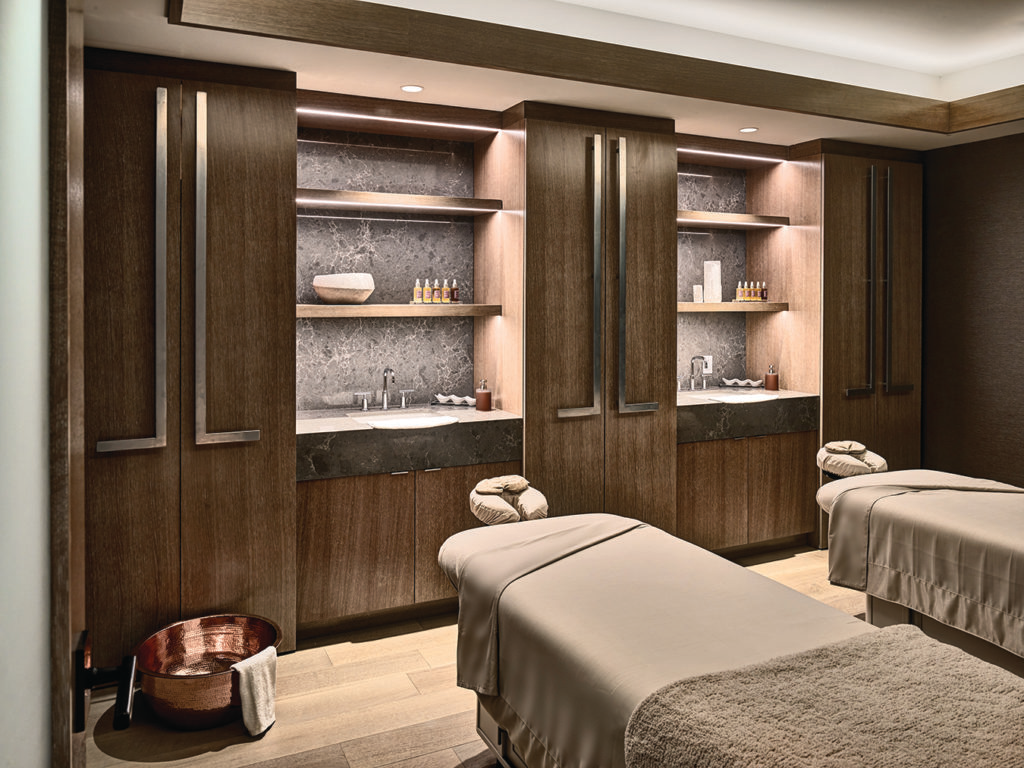
Stay awhile
The Laurel Hotel & Spa is a boutique property with 26 guestrooms and an emphasis on stellar service. Like RCSC’s restaurants, it will be run by students. “We’ll know who you are when you arrive,” van der Reijden says. While one student whisks your luggage away, another will lead you up to see the spa and library area, seamlessly checking you in on an iPad once they welcome you to your room.
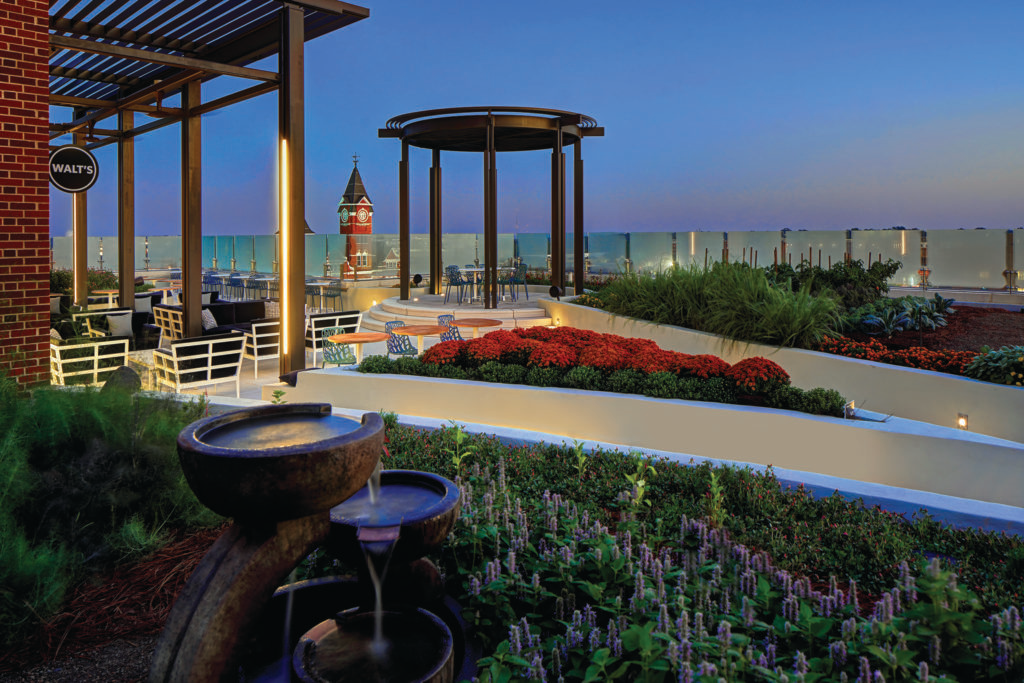
Raising the roof
The pinnacles of the stunning RCSC are the rooftop terrace, pool deck and garden that crown the Laurel Hotel. The lovely view awaiting guests of the property and those attending events held onsite is embellished by the leafy greens, herbs, edible flowers and other veggies growing up top. The garden isn’t only for show; its harvests will also grace dishes and drinks served in RCSC’s eateries and bars. Students will grow produce, take it down to the 1856 kitchen, cook it, plate it and watch it head to a customer’s table. It doesn’t get more hands-on than that.




